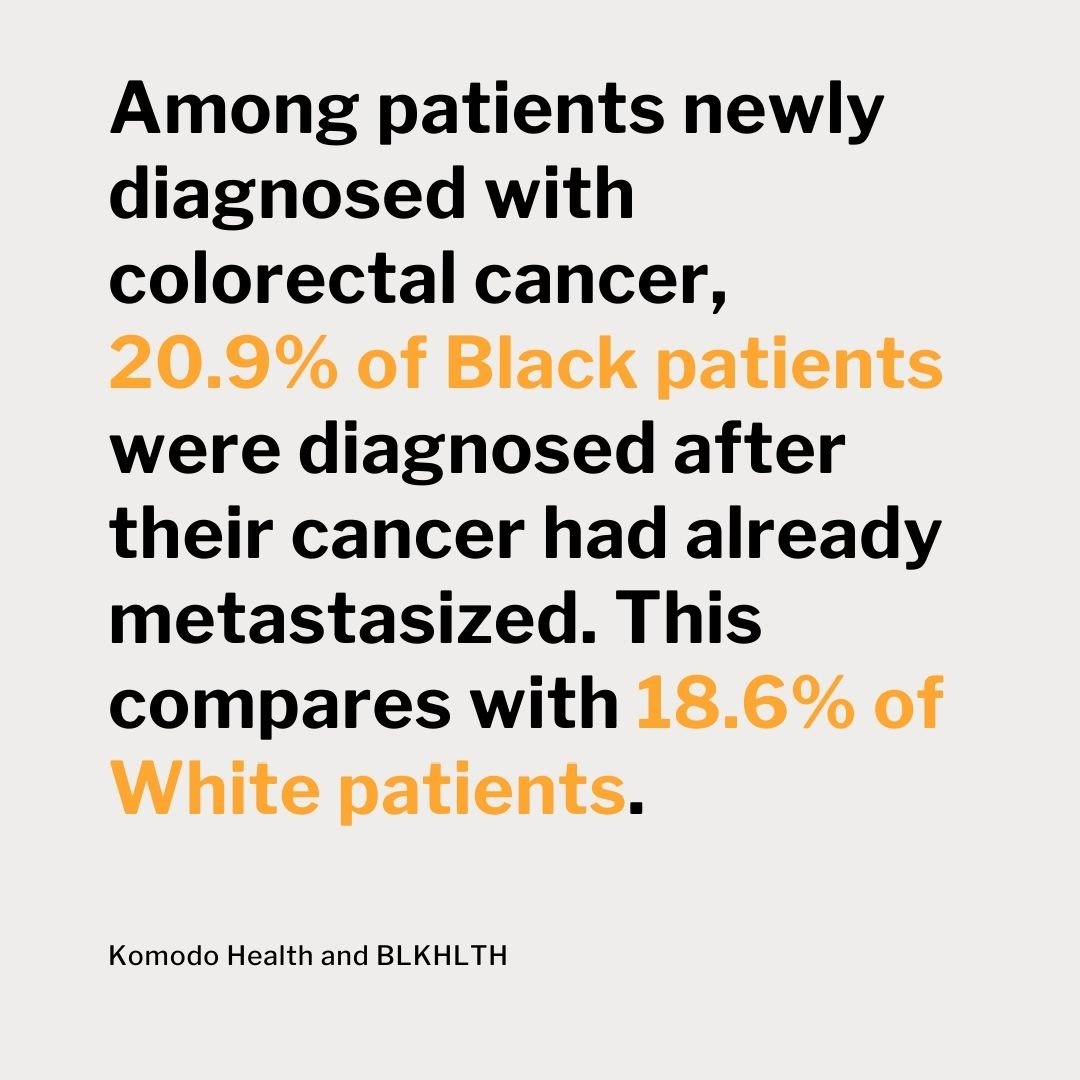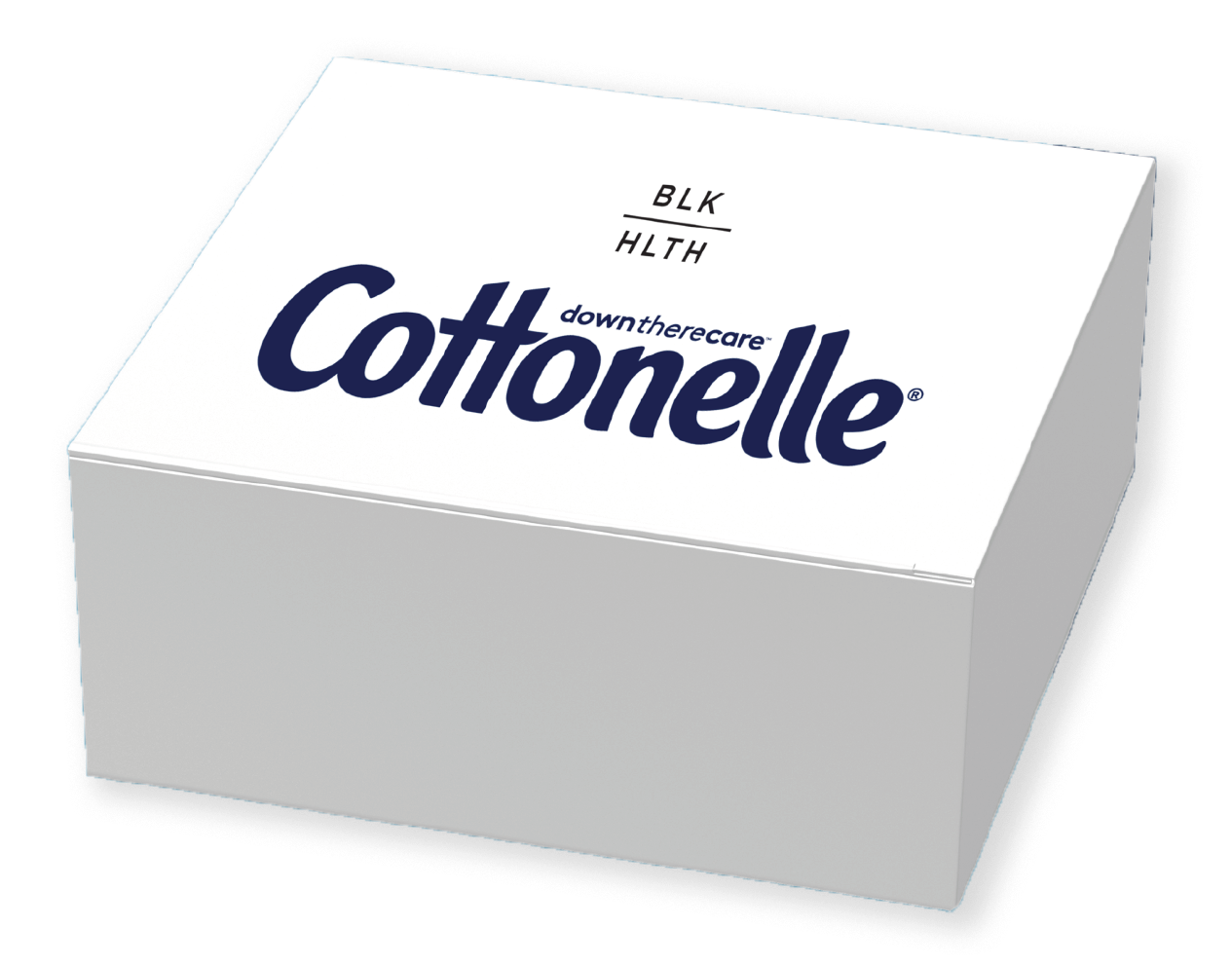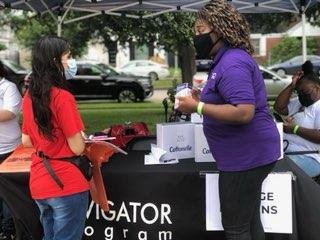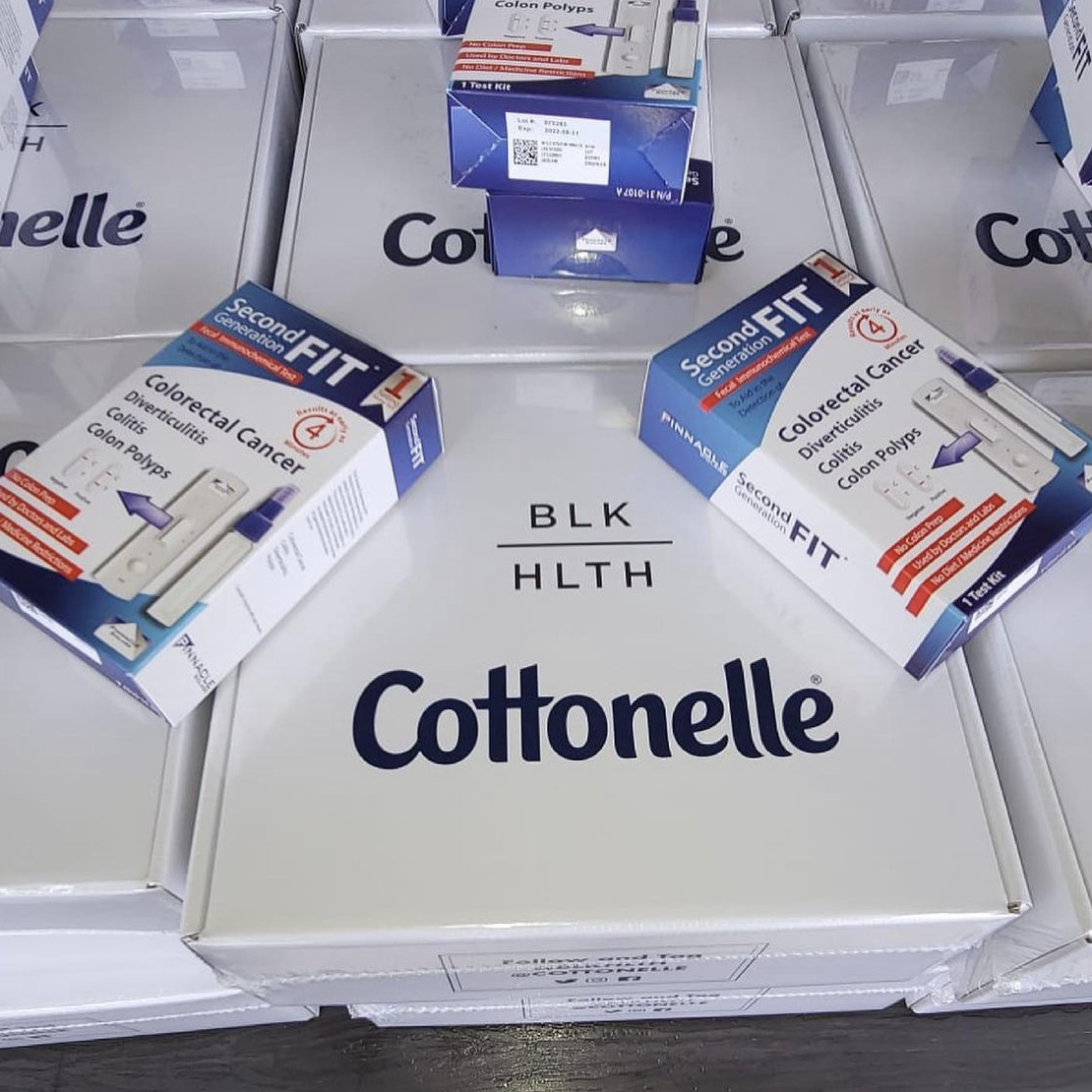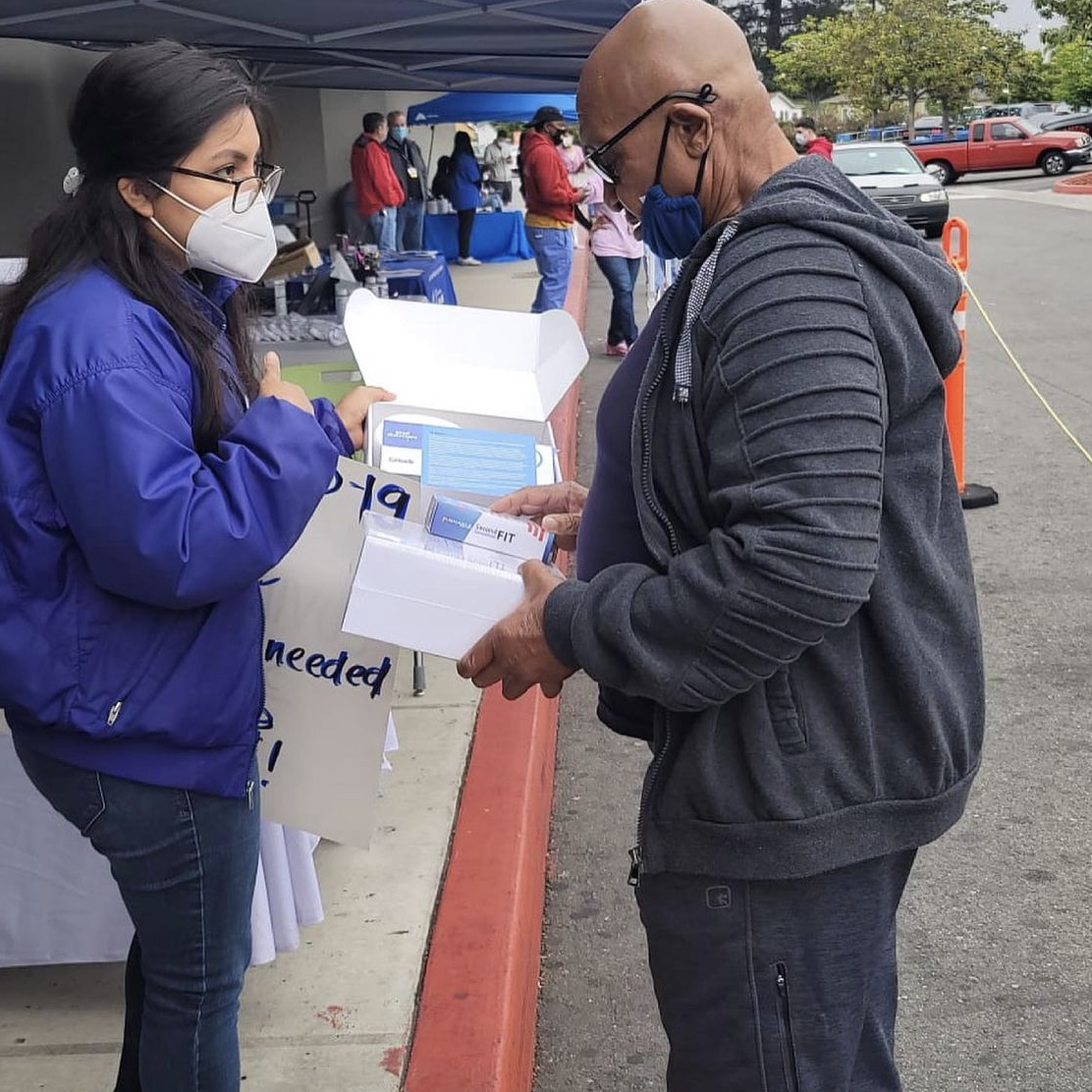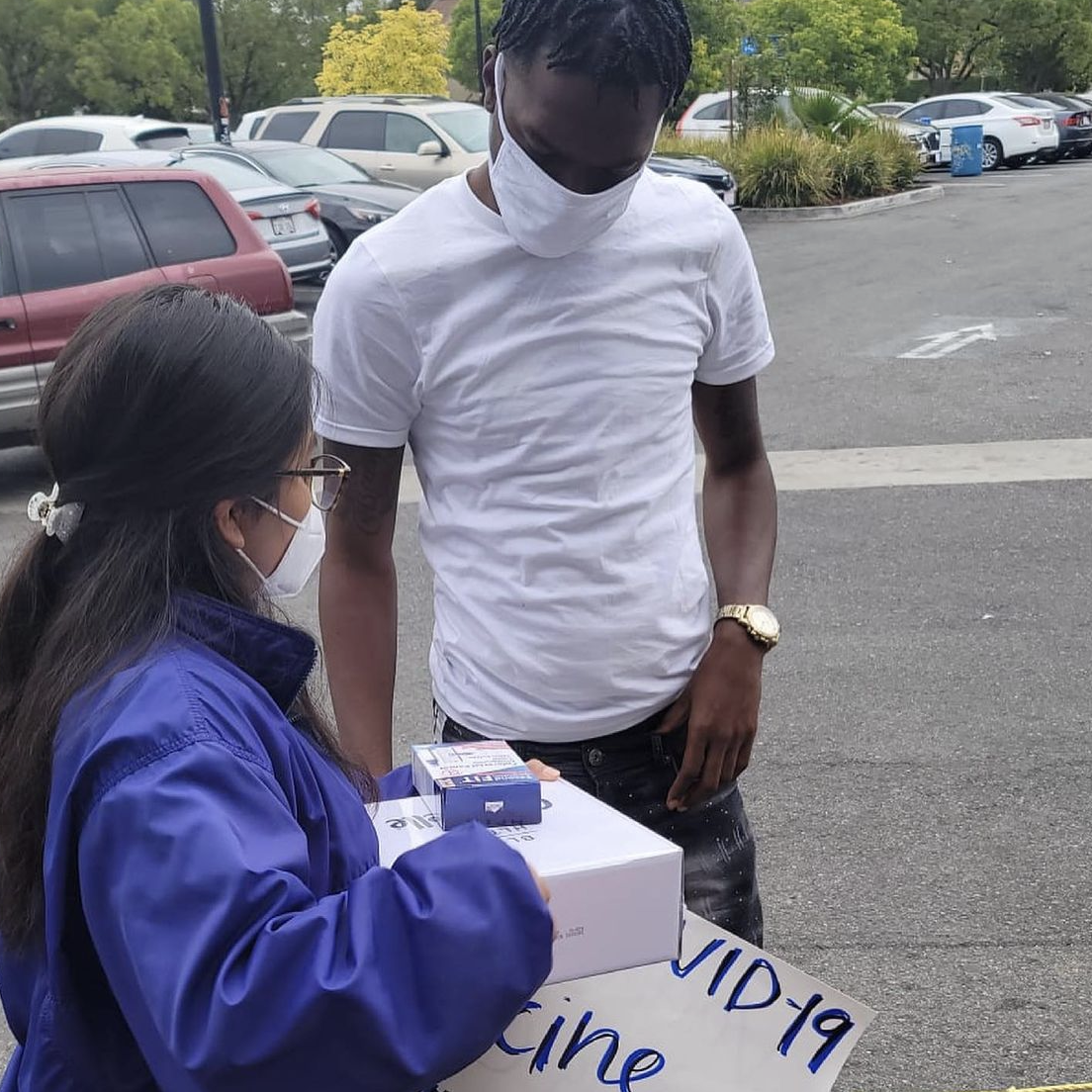
BLKHLTH® and Cottonelle® have teamed up on a whole new way to downtherecare!
Cottonelle knows it can be uncomfortable to discuss “down there” issues. With the support of our founding sponsor, we are working together to provide education, complimentary screenings, and financial resources to Black people and underserved communities. Together, we will help decrease barriers to care, increase access to needed resources, and reduce the stigma around colorectal cancer.

Did you know?
Colorectal cancer, also called colon or rectal cancer, is the third most common cancer in the United States and the second most common cause of cancer-related death.
Racism impacts the ability of Black people to reach optimal health and wellbeing by disproportionately structuring access to health-protective resources like livable-wage jobs, healthy foods, affordable health insurance, and quality medical care (Phelan and Link 2015).
All of these factors impact the prevention, detection, and treatment of colorectal cancer. It’s all in the numbers:


More about colorectal cancer
-
By paying attention to certain symptoms, you might be able to decrease your risk:
Change in bowel habits
Persistent abdominal discomfort
Rectal bleeding
Feeling weak or fatigued
Unexplained weight loss
Gastroenterologist and friend to BLKHLTH, Dr. Folasade May, says it is important to seek medical attention for any of these symptoms, as well as any other pain or discomfort you might be experiencing. For a full list of symptoms to watch out for, or to reach a care provider, visit the Colorectal Cancer Alliance or call the helpline at (877) 422-2030.
-
A risk factor is anything that raises your chance of getting a disease such as colorectal cancer. According to the American Cancer Society, common risk factors for colorectal cancer include:
Your risk of colorectal cancer goes up with age. However, younger adults can still get colorectal cancer. Colorectal cancer is rising among people who are younger than age 50.
If you have a history of adenomatous polyps (adenomas), you are at increased risk of developing colorectal cancer.
If you've had colorectal cancer, even though it was completely removed, you are more likely to develop new cancers in other parts of the colon and rectum.
If you have inflammatory bowel disease (IBD), including either ulcerative colitis or Crohn’s disease, your risk of colorectal cancer is increased.
Most colorectal cancers are found in people without a family history of colorectal cancer. Still, as many as 1 in 3 people who develop colorectal cancer have other family members who have had it.
Many lifestyle-related factors have been linked to colorectal cancer such as diet, physical activity level, smoking, and alcohol use.
-
Maintain your annual physicals with your primary care doctor
If you notice any of the symptoms mentioned above, contact your medical provider immediately or reach out to a care navigator at the Colorectal Cancer Alliance at (877) 422-2030
The Colorectal Cancer Alliance and American College of Gastroenterology recommends Black Americans get screened at age 45.
If you’re age 45 or older, talk to your doctor about scheduling a screening test – there are many options. Colonoscopies should be repeated every 3 to 10 years. Stool-based tests like the fecal immunochemical test can be repeated every year.

Get a free colorectal cancer screening kit
BLKHLTH and our partners are distributing educational materials and colorectal cancer screening tests around the country. Connect with our partners to receive a free kit.
Should you or a loved one have a medical question or feel you’re experiencing symptoms, please reach out to our friends at the Colorectal Cancer Alliance at (877) 422-2030 M-F 9a-5p ET. Mention the Cottonelle GoodDownThere campaign and you may qualify for financial assistance for a colonoscopy.
-
It is critical that you do not ignore or delay follow-up care if your at-home screening test result is positive. A positive result may indicate colorectal cancer or a pre-cancerous polyp that needs to be removed. Addressing a positive result early is essential to minimizing the chances of a bad health outcome in the future. Please be sure to contact your medical professional to discuss the required follow-up care, which should include a colonoscopy. If you do not have a medical provider, call the Colorectal Cancer Alliance Helpline at (877) 422-2030 or visit their website at the Colorectal Cancer Alliance for assistance connecting to a healthcare provider in your area.
How to Take the Second Generation FIT® test by Pinnacle BioLabs
Past distribution events:

Financial assistance for cancer screening & care
BLKHLTH and Cottonelle have partnered with the Colorectal Cancer Alliance to provide a dedicated screening fund for eligible Black patients in need. Click the button below to learn more about the BLKHLTH and Cottonelle sponsored financial assistance fund. Mention the Cottonelle GoodDownThere campaign and you may qualify for financial assistance for a colonoscopy.



